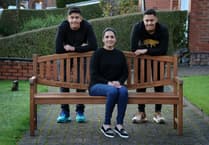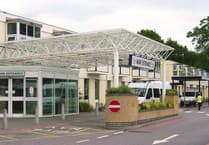A RADICAL new way to fight cancer that will see a live cold virus injected into tumours, is to be trialled on patients at Royal Surrey County Hospital.
The study at the Guildford hospital will see advanced liver tumours infected with the flu-like virus in order to attack and kill cancerous cells, while avoiding harm to healthy tissue.
Dr Tony Dhillon (pictured), a medical oncologist leading the study at the NHS Foundation Trust, said the results could be “potentially game changing” for patients who have been told their liver cancer is inoperable. Currently patients with advanced liver cancer are treated with daily tablets, which only slow the growth of the cancer.
But the trial will see a small amount of the chemical altered virus injected into the tumour during a single appointment. The virus will work by getting inside the tumour’s cancerous cells and replicating.
Eventually the cells will become so full that they will burst, allowing the infection to spread to adjacent cells.
It is also hoped the virus will also be able to penetrate tumours that have spread throughout the body.
Participants should only receive mild, flu-like side effects.
Royal Surrey is the first centre in the UK to open the study, which hopes to recruit 500 participants worldwide.
The trial will be randomised, with half of the patients receiving the injection as well as the tablets, while the other half continue on just the tablets.
The findings will explore the effects of the virus on survival of this group of patients compared to the existing treatment. A similar study is already being trialled in patients with skin cancer, although it is too early to see any clear results.
Dr Dhillon said: “This clinical trial is an exciting step forward to help find new ways of treating cancer.
“These novel approaches are needed to advance treatment, particularly in liver cancer, as the standard care has not changed in 11 years.
“While this treatment is still in its infancy, it could be potentially game changing for a group of patients who may have less than 12 months to live.”
• Any patients with advanced liver cancer interested in taking part in the study should email rsc-tr.communica [email protected]
In a further boost to its credentials as a leading centre for cancer, Royal Surrey has received an international quality mark for its stereotactic radiotherapy treatment.
The trust is one of just a small number of centres in the UK to be Novalis certified, which is a recognised standard for radio-surgery.
Stereotactic radiotherapy is a cutting-edge technique that can be used on inoperable tumours and for patients not fit for an operation.
It is highly accurate and allows patients to receive a high dose of radiotherapy in three to five visits to the hospital, rather than 20 or 30 visits.
The machine works by precisely aiming radiotherapy beams at the tumour from a number of different directions around the patient’s body.
The treatment at RSCH is currently being used for small primary lung tumours and tumours that have jumped from a primary cancer to a bone, lymph node, adrenal gland or the lung.



